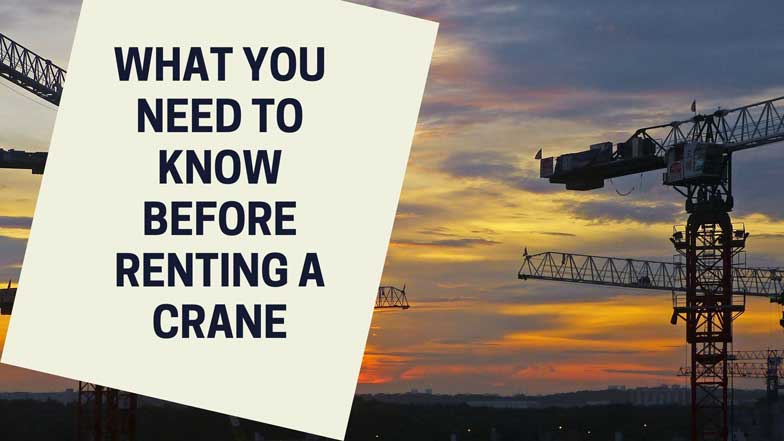Crane Rental NJ can be a great solution, whether you are a construction business owner or need to move a heavy object. However, there are some things you need to know before renting one. In this blog post, we will give you the basics on what to look for when renting a crane, as well as some tips on how to use it safely and efficiently. Keep reading to learn more!
What type of crane should you rent?
There are many different types of cranes here at Crane Company NJ, and each one has its purpose:
Mobile Crane
It can lift heavy objects, but perhaps the most helpful kind of crane is the telescopic boom/jib crane. This type of crane can lift weighty objects without moving them very far (this reduces the chance of falling off). It can also be used in much tighter spaces than other options since it doesn’t have large outriggers or wheels. Another benefit of this type of rental is how the pieces connect to form a single, long boom.
Telescopic Crane
This can be broken down into multiple pieces that can be stored in a smaller space but can quickly connect when the time comes for it to lift something.
When you’re ready to hire a rental company, make sure you know what kind of setup you need in advance.
How much does it cost to rent a crane for a day or week?
Renting a crane is usually not cheap. The average rental rates for cranes vary quite a bit, depending on your location and the type of equipment you need. For example, the daily rate for renting out a telescopic crane with a 12-m long boom is $1400. That’s just for one day! If you need it to work every day in that same week, that will cost $7000. The same unit working on an 18 m long boom can be rented out by the week and costs nearly double $15600/week. Keep in mind. However, various cranes are available, and each has its rental price.
What are the safety requirements for operating a crane rental?
Every operator needs to pass a certification test before working with a rented crane. In addition, the operator is required to have proof of valid insurance, which ensures they will be able to pay for any damage that may occur during their operation.
What happens if the rental period exceeds the agreed-upon timeframe?
Unfortunately, this can happen from time to time, and it’s best to expect it as a possibility when you first book out your equipment. Most companies accept the extra costs, but some do not, so make sure you know what is included in your rent or how much it would cost if you need more time. For example, an extended rental for a one-day hire could cost as low as $200, while the same period for four days could cost an additional $400, which is around 25 percent of the initial fee.
What happens if I damage the equipment due to my carelessness?
This can be a big problem but cannot be resolved. First, you will need to determine what would happen in case of an accident with your rental company. Most policies are lenient on this subject and only charge the standard hourly rate that the equipment was rented for, even when used for something else or damaged. Also, make sure you have someone who can stay with you during all hours of operation as they will help monitor any damages and notify you immediately should anything occur to your crane.
Tips for safely operating a rented crane
- Familiarize yourself with the crane’s controls and how they work
- Make sure the ground is stable and level before using the crane
- Keep a safe distance from other people and objects while operating the crane
- Don’t overload the crane or use it for tasks it’s not meant for
- Inspect the crane for damage before each use and report any problems immediately
- Always wear safety gear when operating a crane
